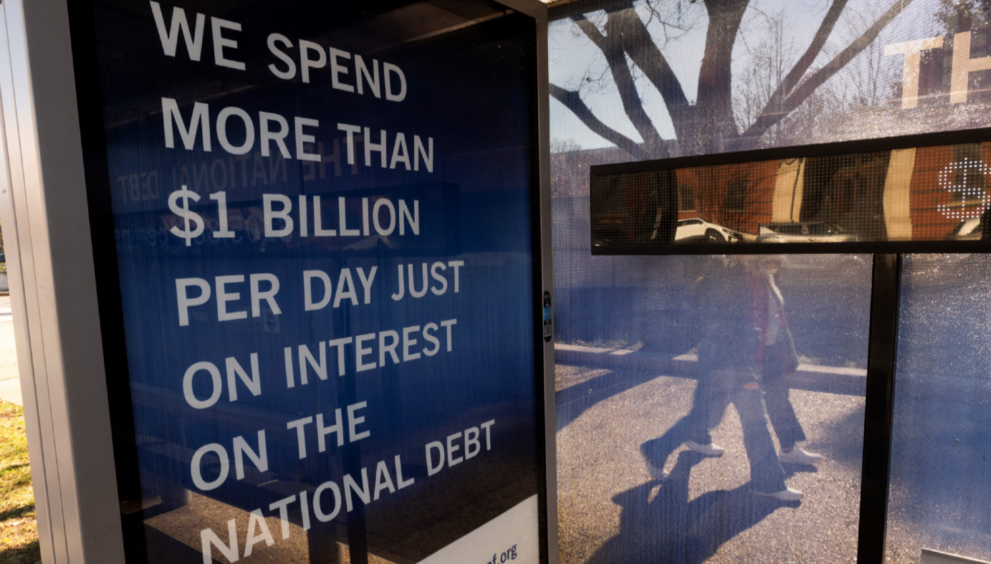Shift Focus to the Debt, Not Trade Deficits

It is common for politicians to promise measures to reduce imports as a solution to ongoing U.S. trade deficits. However, trade deficits should not be the primary concern, as they are merely a reflection of a more significant issue: the persistent large budget deficits that the United States faces.
The trade deficit arises from the variance between the country’s exports and imports; consequently, the natural inclination is to lower this deficit through policies that make importing more costly and challenging. Nevertheless, economists are aware that the trade deficit showcases the surplus of the country’s total spending over its income.
This surplus is not a result of excessive spending by private entities. On the contrary, households and businesses within the U.S. have spent approximately 4 percent less than they earned in 2023. However, the federal government has been significantly outspending its income – maintaining a budget deficit exceeding 6 percent of GDP. This situation has led to the country’s trade deficit being around 3 percent of GDP, financed through foreign borrowing.
The essential connections linking government spending, foreign borrowing, and trade deficits are not well comprehended by politicians or the general media. Nevertheless, acknowledging these links is crucial, as it means trade policies by themselves cannot address these macroeconomic factors effectively.
Without addressing the federal budget situation, implementing tariffs will drive up inflation without substantially reducing the trade deficit. Elevated tariffs directly increase the costs of imported goods.
Furthermore, with the economy currently at full capacity, shifting consumption and production from imports to domestic products will lead to economic overheating and further inflation. Elevated inflation levels would prompt the Federal Reserve to raise interest rates, strengthening the dollar and reducing the competitiveness of U.S. exporters. This competitiveness may further erode as trading partners impose their tariff hikes in response to U.S. trade practices.
Preserving a peaceful, prosperous, and economically interconnected world, policies threatening to disrupt the global economy would hinder our own well-being.
Concentrating solely on trade policies would lead to numerous economic distortions while making little impact on reducing the trade deficit. U.S. consumers, producers, and exporters would feel the repercussions of these misguided measures. Policymakers aiming to adjust the trade balance must strive to alter the equilibrium between national savings and investment by first addressing the nation’s budgetary situation.
In reality, reducing the budget deficit should take precedence over narrowing the trade deficit. Boosting the economy does not necessitate reducing the trade deficit, as the nation is already at full employment, and any further domestic spending would spark inflation. Concerns about trade deficits limiting foreign lending access should not deter us, as foreign investors are eager to invest in U.S. dollar assets.
Conversely, persistent budget deficits are driving the federal debt, which is currently close to 100 percent of GDP, higher and higher. Increasing debt would subsequently elevate interest rates, discouraging investment, escalating interest payments, and exacerbating pressure on the federal budget.
With time, this trend could cast doubts on the government’s fiscal health, prompting foreign lenders to question lending to the U.S.
Though tariffs are necessary in cases safeguarding crucial industries for national security or discouraging unfair trade practices, implementing widespread tariff elevations to reduce the trade deficit would be counterproductive. The U.S. trade deficit is a result of the spending and investment choices made by consumers, corporations, and primarily, the federal government.
The main objective should not be trade restriction but rather endorsing more responsible fiscal policies.
Steven B. Kamin is a senior fellow at the American Enterprise Institute, and formerly directed the Federal Reserve Board’s International Finance Division. William Colton is a past vice president at ExxonMobil.






















































































































































































































































































































































































































































































































































































































































































































































































































































































































































































































































































































































































































































































































































































































































































































































































































































































































































































































































































































































































































































































































































































































































































































































































































































































































































































































































































































































